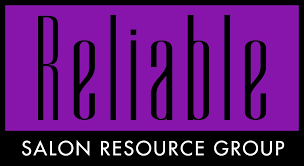The Front Line of Business: How Receptionists Enhance Corporate Image and Efficiency

Receptionists often serve as the first point of contact in a business setting, playing a crucial role in shaping the corporate image and ensuring operational efficiency. Their presence and professionalism can significantly influence customer perceptions and create a welcoming atmosphere that reflects the company’s values and ethos. These frontline professionals are not just gatekeepers; they are a vital part of the business’s daily functions, facilitating smooth communication and enhancing the overall workplace environment.
For businesses looking to improve their front desk operations, The Career Academy Online Courses offer specialized training that equips receptionists with the necessary skills to excel in their roles. From mastering multi-line phone systems to managing visitor logs and providing exceptional customer service, these courses ensure that receptionists can effectively contribute to their organizations and uphold a high standard of corporate professionalism.
Key Responsibilities of Receptionists
Receptionists are pivotal in ensuring the smooth operation of an office and facilitating effective communication across all levels of a business. Their responsibilities extend beyond mere administrative tasks, contributing significantly to both the workflow and the atmosphere within the workplace. Here’s an expanded look at the essential roles they play:
- Customer Service and Visitor Management: Receptionists are often the first point of contact for anyone entering a business. They manage interactions with clients and visitors, ensuring that each person receives a warm welcome and prompt attention, which helps to foster positive relationships and enhance the company’s reputation.
- Administrative Support: Receptionists handle a variety of critical administrative tasks that are crucial for maintaining office efficiency. This includes managing emails, scheduling appointments, organizing meetings, and maintaining files, which helps keep the daily operations smooth and organized.
- Communication Hub: Serving as the central hub for both internal and external communications, receptionists efficiently route calls, relay messages, and ensure that information reaches the right people promptly.
- Resource Management: They are also responsible for managing office resources by keeping track of inventory like office supplies and ensuring that essential items are always available when needed.
- Event Coordination: In many settings, receptionists assist in organizing company events, from small internal gatherings to major corporate functions, coordinating logistics to ensure events run smoothly.
By handling these diverse tasks, receptionists significantly contribute to the operational success of their organizations, proving that their role is integral not only to office management but also to shaping the overall business environment.
The Impact of Professional Training
Professional training plays a crucial role in enhancing the capabilities of receptionists, enabling them to stay abreast of the latest developments in administrative technology and customer service. Continuous education and training ensure that receptionists are proficient in modern office software, effective communication techniques, and advanced customer service strategies. This not only boosts their productivity but also enhances their ability to handle complex situations, ultimately contributing to a more efficient and professional workplace.
Furthermore, investing in professional development opens up avenues for career advancement for receptionists. As they acquire new skills and demonstrate increased competency, they often gain opportunities to take on more significant responsibilities within the organization. This progression can lead to promotions and new roles that offer broader career experiences and higher positions, underscoring the value of ongoing education in facilitating personal and professional growth in the corporate environment.
Technological Tools for Modern Receptionists
Modern receptionists are equipped with a variety of technological tools that streamline their tasks and enhance their productivity. Here’s a deeper look at the essential tools and technologies that support their daily functions:
- Software Proficiency: Receptionists must master various software tools designed for office management, such as Microsoft Office Suite for document preparation and email management, and CRM systems for maintaining customer relationships and databases. These tools assist with scheduling appointments, managing communications, and handling data entry efficiently.
- Automation of Routine Tasks: Technologies such as automated scheduling tools and AI-driven customer service chatbots can take over repetitive tasks like appointment bookings and answering frequently asked questions. This allows receptionists to focus more on providing personalized support and addressing complex customer needs.
- Cloud-Based Collaboration Tools: Platforms like Google Workspace and Microsoft Teams enable receptionists to collaborate in real-time with team members across different locations, share files seamlessly, and maintain clear communication channels.
- Visitor Management Systems: Modern electronic systems replace traditional sign-in books, streamlining visitor check-ins, improving security, and allowing receptionists to manage visitor flow more effectively.
By utilizing these technological advancements, receptionists can significantly improve their efficiency and effectiveness, ensuring they provide the best possible service to customers and colleagues alike.
Challenges Faced by Receptionists
Receptionists often face the significant challenge of multitasking under pressure, where they must manage a variety of tasks simultaneously without compromising the quality of service. This demands high organizational skills and the ability to prioritize tasks swiftly and effectively. Whether it’s answering phones, scheduling appointments, or attending to visitors, the ability to stay composed and efficient under pressure is crucial for maintaining smooth operations at the front desk.
Additionally, receptionists frequently encounter difficult situations, including managing challenging interactions with clients or visitors. Developing strategies to handle these situations while maintaining professionalism is essential. This includes using effective communication techniques to de-escalate conflicts, understanding when to involve higher management, and maintaining a calm and courteous demeanor throughout. By mastering these skills, receptionists can ensure a positive atmosphere and uphold the company’s professional standards even in the face of challenges.
Elevating Business Through Skilled Receptionist
The role of receptionists is integral to maintaining a professional image and ensuring operational efficiency in any business. With the right training, such as that provided by The Career Academy Online Courses, receptionists can enhance their skill sets, contribute more effectively to their teams, and achieve personal career goals. Investing in the development of receptionist skills not only benefits the individuals in these roles but also strengthens the business as a whole, emphasizing the undeniable value of skilled office support in today’s corporate world.



